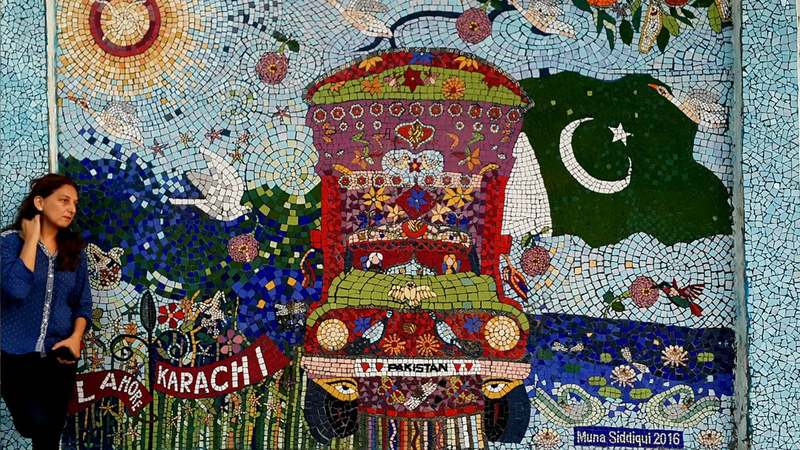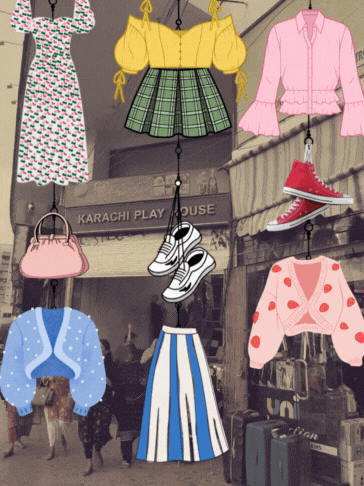A 100-year-old house finds new life as a cultural hotspot in Karachi
Learning about heritage and history doesn’t have to be dry and boring; that was the biggest take-away I had when I visited the TDF Ghar ─ a period house on Saddar’s M.A. Jinnah Road conserved under The Dawood Foundation, retaining most of its heritage architectural details.
Built nearly a century ago, the house is located in the Jamshed Quarters area, a cooperative housing society developed by Karachi’s first mayor Jamshed Nusserwanjee, catering to the city’s growing middle class at the time. It was a religiously diverse community at the time, home to Muslims, Hindus, Christians, Parsis and Jews, marking the urbanisation of Karachi.
“We have tried to recapture the spirit of the old cosmopolitan Karachi,” Fasih Biyabani, general manager of The Dawood Foundation, said. “It is a space for public, especially the younger lot, to come and soak in the rich heritage of Karachi as they delve into discussions about science, arts and everything in between.”
The space has ample seating in the open-air Sehan Café with its old Irani bentwood chairs, access to WiFi and sockets to plug in laptops on all floors.

The warm yellow colour of the wall and lots of plants with the Champa flower tree ─ iconic to homes of the olden times ─ the sehan makes for a perfect place to relax and unwind over chai and snacks, available at a minimal cost.
The main attraction of TDF Ghar is “The Living Room” museum, which comprises antique artefacts and collectables from as early as 1930s. With bentwood furniture, vintage chess sets, a glass cupboard with fine china, an original Silica treadle sewing machine and a gramophone (that actually works!) ─ the living room is a heritage lover’s paradise.
There’s more.
The rooftop of the house offers a breathtaking view of the Quaid’s mazaar. Its boundary walls are bordered with beautiful flower boxes and a colourful mosaic of the house’s original tiles. The roof’s walls are also lined with sockets to facilitate those who want to work on their laptops as they enjoy the Karachi breeze and immerse themselves in the city of lights.
Since its construction in the 1930s, the house has withstood historic movements like the exit of the British empire and the tumultuous partition of the subcontinent, and has thrived in the volatile city of Karachi.
“We used to run a vocational training centre here in the 1960s before we had to shut down the facility in 1991 due to lack of inflow. It had been lying vacant since then, making it an easy target for the land mafia to plunder the property,” Biyabani said. “There were piles of trash lying here. The house was in a really bad condition.”
“This place was previously underutilised, impractical and empty; watching it transform into a public space is the biggest source of pride for me,” Sabrina Dawood, the CEO of The Dawood Foundation and the visionary behind the project said in a press statement. “It is truly a testament to the transformative power of art and legacy in our society.”
There’s an entrance fee of Rs50 at TDF Ghar. The space is open to public from 10am to 10pm, seven days a week, except for the museum which closes at 6pm.













Comments